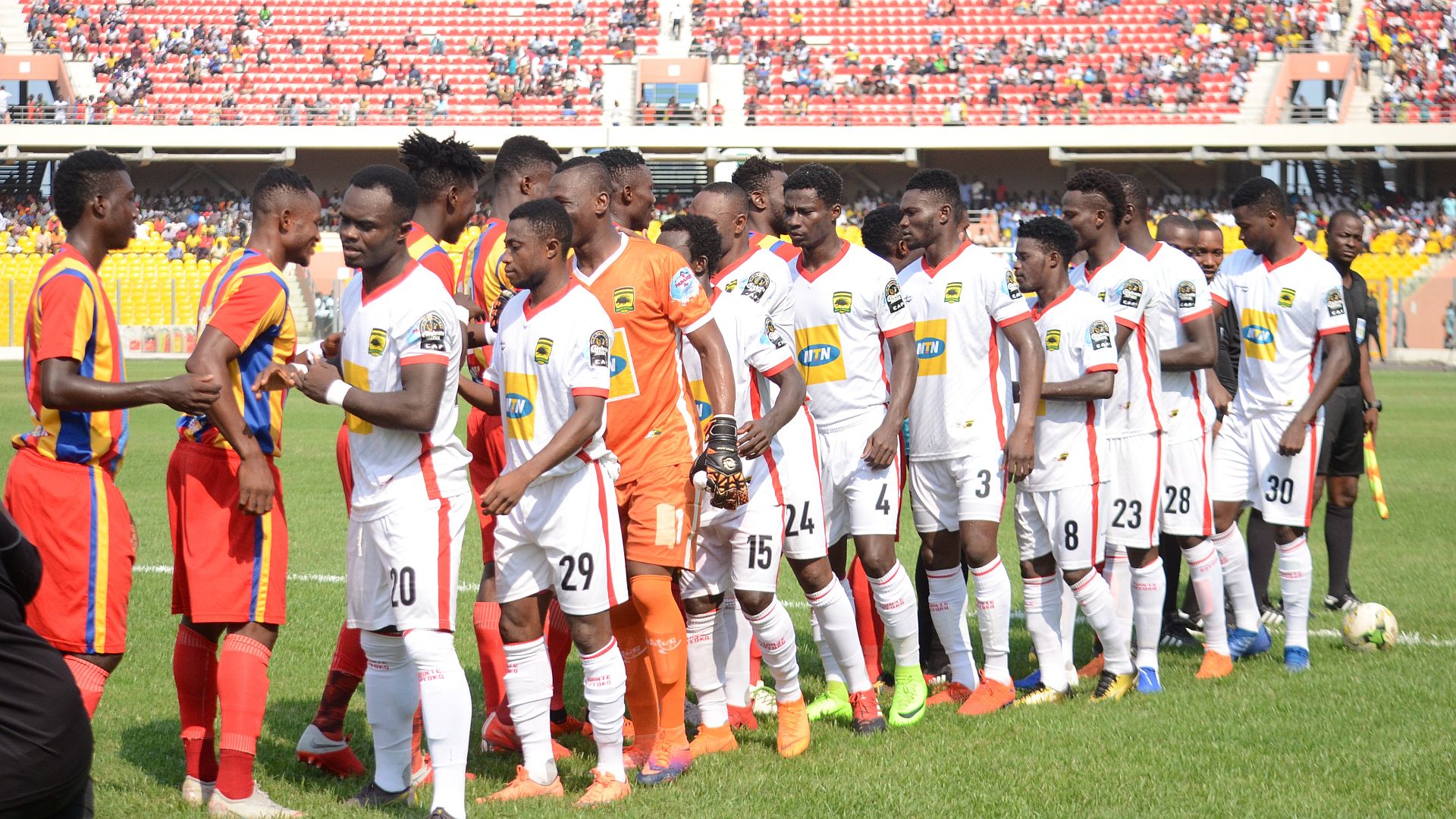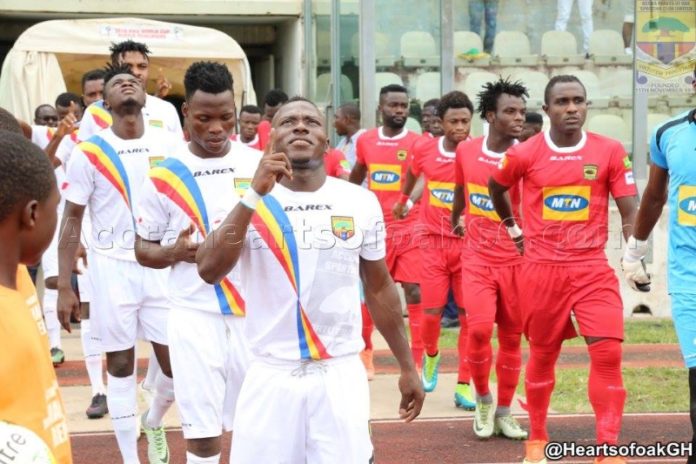|
Getting your Trinity Audio player ready...
|
The young driver was thrilled. Watching Accra’s finest compete at the national sports stadium in the capital was a spectacle that, even in the presence of the stern colonial army officer he chauffeured, Kwasi Kuma just could not resist.
Resplendent in their multi-colored uniforms and dazzling on the pitch, one of the sides — eventual victors Hearts of Oak — caught Kuma’s eye and planted themselves firmly in his mind. From that seed, a team was to sprout later that year (1924) in Kumasi, Ghana’s ‘other capital’, which – in its final incarnation – would bring out the best and worst in Hearts for as long as they both shall live. A team to have and to hold, to love and to loathe till ‘death’ did them part. The Nyankyerenease native may not have known it then, but Ghana’s bitter political history would place the club that inspired him and that which he inspired on a perpetual collision course.

See, Accra and Kumasi had always shared that sort of rivalry you’d find between, say, the Spanish cities of Madrid and Barcelona: the former generally bigger and the seat of power, the latter big in its own right and a breeding ground for everything anti-establishment. Oblivious to these factors (which would largely come into play much later, anyway), Kuma — with the help of other enthusiasts — set about creating a club and modeling it as closely after Hearts as possible. He even named it Kumasi Rainbow in a not-so-subtle nod to the Phobians he was so enamored of, but that name didn’t last too long and neither did the next few: Ashanti United, Kumasi Titanics, and Mighty Atoms.
Eventually, though, one was found in August 1935 that would stick and come to define the club’s very essence: Asante Kotoko. With an identity borrowed from the powerful Ashanti state — complete with the monarchy’s bright yellow and green colors, and the emblem of a porcupine — and blessed by royal patronage, Kotoko had arrived as a force of its own; Hearts, before long, drew into sharp focus as a rival — an archrival, in fact — courtesy the aforementioned Accra-Kumasi ‘cold war’ and then some.

Their maiden league meeting — hosted in Kumasi, just a week to Kotoko’s 23rd birthday — was terminated prematurely by crowd violence with Hearts leading 4-3; the return leg, held five days after Hearts turned 47 and following a replay of the previously abandoned game that they won, saw Kotoko triumph. That match was completed properly the first time, yet its immediate aftermath witnessed another episode of the wild display of emotions by spectators that was quickly, and worryingly, becoming this fixture’s signature.
Forty-three (the number of league titles between them, incidentally, with Kotoko enjoying a small lead) years later, they’d be responsible for cooking up — with the complicity of the police — Ghana’s worst sporting disaster that claimed 126 lives. And yet the same pair, in early 2005, delivered arguably Ghanaian football’s most orgasmic moments in recent memory, when they contested the inaugural CAF Confederation Cup final.

On Sunday, their uneasy rivalry romance — which unites the country as much as it divides it — comes alive again and, as always, it is a pretty big deal. But while a not-your-average press conference and all the hype that has preceded the game easily gives the impression that these two sides are still the best in the land, just don’t fall for it; Hearts haven’t won the Ghana Premier League in a decade, Kotoko in half as long a period.
Five games into the present campaign, neither has had too smooth a ride. Hearts have recovered from a poor start and look like hitting the rich vein of form with which Kotoko began the season. The Porcupine Warriors themselves have slipped to seventh on the table but are still two places higher than Hearts ahead of the weekend’s visit to Accra. Somehow, though, theirs is the most talked-about contest of the round, even with two mouth-watering matches between four of the six clubs that have won the league since Hearts were last crowned champions – and, indeed, the league’s current top four — featuring in the line-up.
Well, there you have it: no greater testament to the enduring, eternal relevance of what Hearts and Kotoko share — whatever it is.
NY Frimpong — Daily Mail GH





